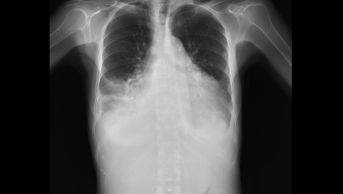
Shutterstock.com
Regular consultations with pharmacists lead to improved medicine adherence in people with chronic heart failure (HF), research results published in the European Journal of Heart Failure show (25 May 2019)[1]
.
The trial involved 237 people from Germany aged ≥60 years with chronic HF receiving diuretic treatment and whose condition had worsened or required hospitalisation in the prior 12 months.
Patients were randomly assigned to usual care or pharmacy care, which meant they received a medication review followed by regular dose dispensing and counselling every one to two weeks.
Over a period of 365 days, the pharmacy group filled prescriptions for 91.2% of days versus 85.5% for the usual care group. The intervention group were 2.9 times more likely to be classed as adherent (≥80% days covered) than the usual care group (86.0 vs 68.0%).
Overall, the researchers found that the pharmacy care intervention improved quality of life after two years, compared with usual care.
Previous research has shown that 30–50% of people with chronic HF are non-adherent to their medicine, which can lead to a resurgence of symptoms and impaired quality of life.
“Pharmacy care represents a valuable addition to the comprehensive care for HF patients,” the authors wrote, adding that effects of the intervention on morbidity and mortality needed to be assessed in a larger randomised trial.
References
[1] Schulz M, Griese-Mammen N, Anker S et al. Pharmacy-based interdisciplinary intervention for patients with chronic heart failure: results of the PHARM-CHF randomized controlled trial. Eur J Heart Fail 2019. doi: 10.1002/ejhf.1503


